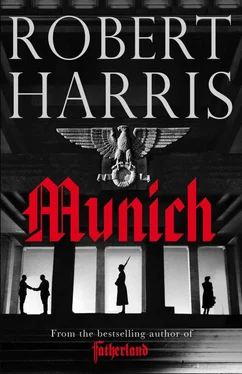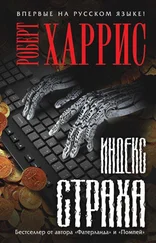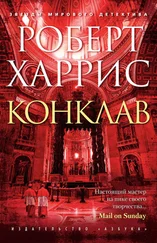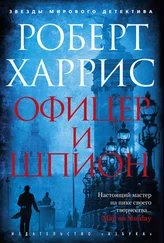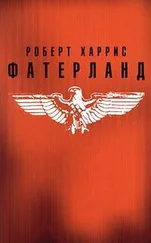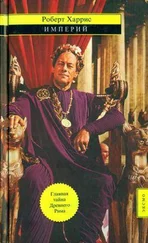‘I wish we could take a room,’ he said suddenly, ‘and stay in bed all afternoon. Forget about Hitler. Forget about the children.’
‘Well, why don’t you see if you can arrange it? We’re here. What’s to stop us?’ She held his gaze with her large grey-blue eyes and he saw, with a sudden insight that caught him in his throat, that she was only saying it because she knew it would never happen.
Behind him a man coughed politely. ‘Mr Legat?’
Pamela took away her hand. He turned to find the maître d’, palms pressed together as in prayer, grave with self-importance.
‘Yes?’
‘Number Ten Downing Street are on the line for you, sir.’ He was careful to say it just loudly enough for the neighbouring tables to hear.
‘Hell!’ Legat stood and threw down his napkin. ‘Will you excuse me? I’ll have to take it.’
‘I understand. You go and save the world.’ She waved him on his way. ‘We can have lunch any time.’ She started packing her things into her handbag.
‘Just give me a minute.’ There was a pleading edge to his voice. ‘We really have to talk.’
‘Go.’
He hovered for a moment, conscious of the nearby diners staring at him. ‘Do wait,’ he said. He assumed what he hoped was a neutral expression and followed the maître d’ out of the restaurant and into the lobby.
‘I thought you’d like some privacy, sir.’ The maître d’ opened a door to a small office. On the desk was a telephone, the handset beside it.
‘Thank you.’ He picked up the receiver and waited until the door had closed before he spoke. ‘Legat.’
‘Sorry, Hugh.’ He recognised the voice of Cecil Syers, one of his colleagues in the Private Office. ‘I’m afraid you’re going to have to come back right away. It’s about to get rather hectic. Cleverly is asking for you.’
‘Has something happened?’
There was a hesitation at the other end. The Private Secretaries were told always to assume the operator was listening in. ‘It looks as though the talking’s over. Our man is flying home.’
‘Understood. I’m on my way.’
He replaced the receiver on its cradle. For a moment he stood paralysed. Was this what History felt like? Germany would attack Czechoslovakia. France would declare war on Germany. Britain would support France. His children would wear gas masks. The diners at the Ritz would abandon their white linen tablecloths to crouch in slit trenches in Green Park. It was all too much to grasp.
He opened the door and hurried back across the lobby into the restaurant. But such was the efficiency of the Ritz’s staff their table was already cleared.
In Piccadilly there was not a taxi to be had. He danced back and forth in the gutter, vainly waving his rolled-up newspaper at every passing cab. Finally, he gave up, rounded the corner into St James’s Street and set off down the hill. From time to time he glanced across the road in the hope he might see his wife. Where had she gone in such a hurry? If she was walking straight home to Westminster, this was the direction she would have to take. Best not to think of it; best never to think of it. Already he was sweating in the unseasonable heat. Beneath his old-fashioned three-piece suit, he could feel his shirt sticking to his back. Yet the sky was dull, threatening a rain that somehow never came, and all along Pall Mall, behind the tall windows of the great London clubs — the Royal Automobile, the Reform, the Athenaeum — the chandeliers glittered in the humid gloom.
He did not slacken his pace until he reached the top of the steps leading down from Carlton House Terrace to St James’s Park. Here he found his path blocked by a silent crowd of twenty watching what looked like a small airship rising slowly behind the Houses of Parliament. It ascended past the spire of Big Ben, an oddly beautiful sight — majestic, surreal. In the distance he could make out half a dozen others in the sky south of the Thames — tiny silver torpedoes, some already thousands of feet high.
The man beside him murmured, ‘I suppose you could say the balloon’s gone up.’
Legat glanced at him. He remembered his father using exactly the same expression when he was home on leave during the Great War. He had to go back to France because the balloon had gone up. To Hugh’s six-year-old ears it had sounded as if he was going off to a party. It was the last time he had seen him.
He edged his way around the spectators, trotted down the three wide flights of steps, across the Mall and into Horse Guards Road. And here, in the centre of the sandy expanse of the parade ground, in the half-hour since he left, something else had happened. A pair of anti-aircraft guns had appeared. Soldiers were unloading sandbags from a flatbed lorry, working quickly as if they feared the Luftwaffe might appear at any moment, passing them from hand to hand along a human chain. A half-built wall of sandbags surrounded a searchlight battery. A gunner furiously turned a wheel; one of the barrels swung around and elevated until it was almost perpendicular.
Legat took out a large white cotton handkerchief and wiped his face. It would not do to turn up red-faced and perspiring. If there was one sin that was frowned upon above all others in the Private Office, it was appearing to be in a flap.
He climbed the steps into the narrow, shadowed, soot-blackened cutting of Downing Street. On the pavement opposite Number 10, a group of reporters turned their heads to follow his arrival. A photographer raised his camera, but when he saw it was no one of importance he lowered it again. Legat nodded to the policeman, who rapped once, hard, with the knocker. The door opened as if of its own volition. He stepped inside.
It was four months since he had been seconded from the Foreign Office to work in Number 10 yet each time he felt the same sensation: as if he were entering some gentlemen’s club that was no longer fashionable — the black-and-white-tiled lobby, the walls of Pompeiian red, the brass lantern, the grandfather clock ticking its leisurely heartbeat, the cast-iron umbrella stand with its solitary black umbrella. Somewhere in the depths of the building a telephone rang. The doorkeeper wished Legat a good afternoon and returned to his leather coachman’s seat and his copy of the Evening Standard .
In the wide passageway leading to the back of the building Legat paused and checked himself in the mirror. He straightened his tie and smoothed down his hair with both hands; he braced his shoulders; turned. Ahead of him was the Cabinet Room, its panelled door closed. To his left, the office used by Sir Horace Wilson, also closed. To his right, the corridor that led to the offices of the Prime Minister’s Private Secretaries. The Georgian house exuded an air of imperturbable calm.
Miss Watson, with whom he shared the smallest office, was bent over her desk, exactly as he had left her, walled in by piles of folders. Only the top of her grey head was visible. She had begun her career as a typist when Lloyd George was Prime Minister. He was said to have chased the Downing Street girls around the Cabinet table. It was hard to imagine him chasing Miss Watson. Her responsibility was preparing answers for Parliamentary questions. She peered at Legat over her barricade of papers. ‘Cleverly has been in looking for you.’
‘Is he with the PM?’
‘No, he’s in his office. The PM’s in the Cabinet Room with the Big Three.’
Legat made a noise that was between a sigh and a groan. Halfway along the corridor, he stuck his head into Syers’s office. ‘All right, Cecil, how much trouble am I in?’
Syers swung round in his chair. He was a small man, seven years Legat’s senior, constantly and irrepressibly and often irritatingly amused. He wore the same college tie as Legat. ‘I’m afraid you picked rather the wrong day for a romantic lunch, old fellow.’ His voice dropped sympathetically. ‘I hope she didn’t take it badly.’
Читать дальше
